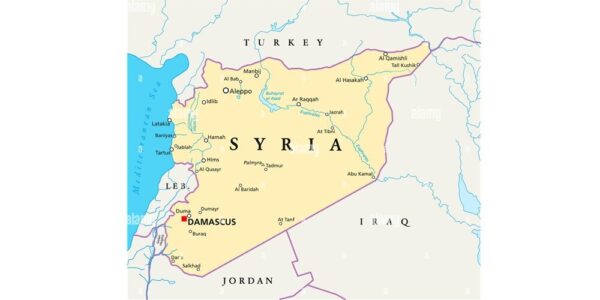The Downfall of Assad: Possible Implications
The Middle East looks engulfed in a never-ending war fury. The two main factors responsible are its geostrategic location and diversified sectarian plurality. Though it appears that the region is going to lose its relevance in geopolitics on account of phasing out of fossil fuels and attention of world powers shifting towards Indo-Pacific region but it’s power of connecting and regulating East and West is going to wade unlikely. The region will continue to be chaotic until the emergence of global south in a proper form that seems far from reality given the current global power dynamics.
The hell people are going through particularly in Gaza on account of power rivalries of so-called super powers who exploit sectarian plurality and cultural diversification of the region in order to explore and advance their interests, is going to end in near future. As usual the warring parties will exchange hostages and reach temporary agreements only to be meant to prepare ground for next confrontation. The legacy left behind by Sykes and Picot will continue playing such games and bleed the region in future.
The core that continues to shape the region is that of Levant-Mediterranean lands east of Italy consisting of Jordan, Lebanon, Syria, Palestine and Israel. The region connects Eurasia with Africa by land. All regional powers: Iran, Turkey and Saudi Arabia get connected through it with Lebanon being the cornerstone. The current bloody war is the cumulative effect of the interplay of forces of great power centers with local powers. With the ouster of Bashar al Assad, the US has been successful in shielding its principal ally Israel, keeping Iran at bay and corner Russia. Turkey has eliminated its biggest threat by partially isolating Kurds. But the relations between the US and Turkey are imminently going to witness friction on account of their differences on Syrian Democratic Forces. Russian-Turkey relations will pivot back to their natural geographical fulcrum: the Black Sea region, with Erodgan possibly assuming an intermediary role between Putin and The west. Iran and Russia seem to have lost grip on Syria but they will be diverting their huge funds invested there in augmentation of their respective country’s strengths. This also assumes significance in the backdrop of the statement given by one of the officials of Russia that Assad and Syria had become a suitcase without a handle for them. And perhaps in the eyes of China, Iran was becoming the same for it with the result China did not back it much in its confrontation with Israel. Saudi-Iran rapprochement brokered by China was turning point that the US was looking for to take the shape and put brakes on growing Iran-China axis detrimental to it in the region. The US has indeed succeeded in puncturing Iran-China relations. Saudi will be looking for deal with the US mainly involving defense treaty that is going to materialize unlikely because of opposition from Israel besides inward pressures. With Iran taking a back seat for the time being, engaged in reorganizing, recalibrating and strategizing to see itself buoyant again in the world order, it will be interesting to observe how Saudi Arabia navigates it’s relationship with the US and China. With moderate president Masoud Pezeshkian in action, the probability of Iran-US rapprochement occurring in what so ever form can’t be ruled out.
* Click to Follow Voice of Ladakh on WhatsApp *
The downfall of Bashar al Assad that resulted in culmination of 49 years rule of Assads in Syria appeared calm and smooth but the geopolitical weight that it carries on its wings is quite unimaginable. It obviously looks win win situation for all. But it is still an open battleground between power centers, the only thing that happened fortunately is the avoidance of causalities and hardships faced by the natives in the midst of already going perilous fights that have taken toll on good people of Palestine and Ukraine; former paying for giving asylum to the people who were victims of the holocaust and later for giving up its nuclear weapons for the greater good of the earth. The only losing parties if any in Syria will be the minorities who are now more susceptible to attacks.
Post fall of Assad Israel conducted an incursion in Qunitera and took Mount Hermon, a meeting point for Palestine, Syria and Lebanon. This is only going to exacerbate complexity of issues already confronting the Middle East. Why is Israel hell bent on dismantling the security infrastructure when it knows that this potentially can help Iran in using Syrian land for transferring arms and ammunition to Hezbollah. Perhaps the plausible answer lies in the fact that Israel and the US don’t want to allow incoming government to become independent in terms of security and snatch it’s power of maneruability thus compelling it to make some significant compromises for it.
The act of balancing the interests by the stakeholders will give birth to complex web of undercurrents. Syrian opposition leaders and HTS (Hayat Tahrir al-Sham) have pledged to work towards an inclusive government that acknowledges Syria’s ethnic and religious diversity. The time will tell whether their actions are governed by the principle: True liberation lifts all but chains none or else they find themselves in the hands of those who have much to gain from stoking rather than defeating a conflict.
Disclaimer: The opinions expressed in this article are those of the author and do not necessarily reflect the views of Voice of Ladakh or its editorial team.






0 Comments